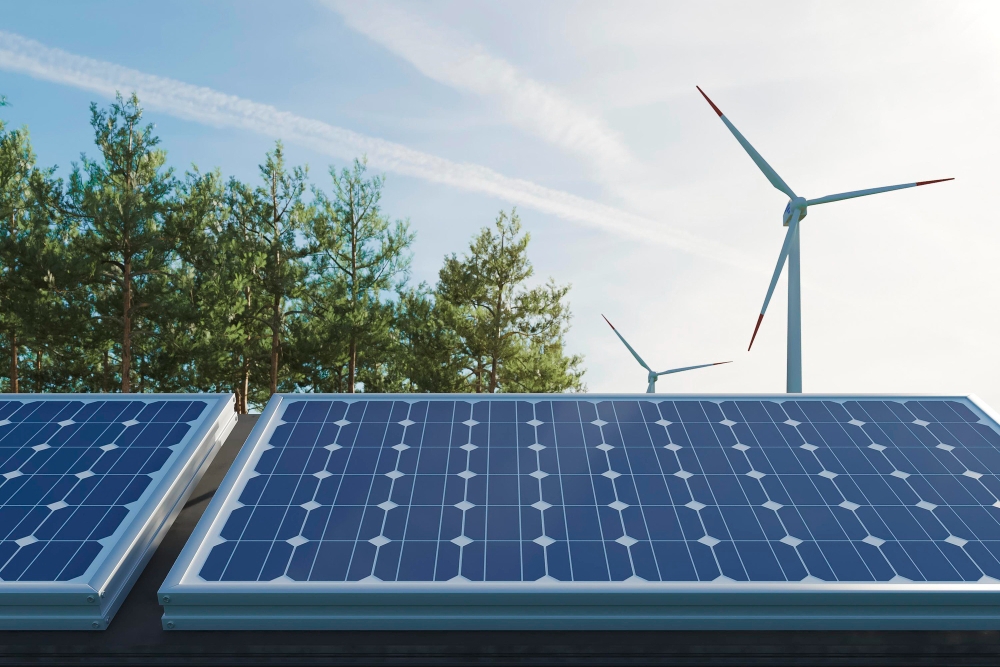
Businesses worldwide are facing a clear imperative: to manage their environmental footprint. This extends beyond their direct operations, encompassing emissions generated throughout their supply chains, referred to as Scope 3 emissions.
Consequently, supply chain decarbonisation has become a central focus for achieving corporate sustainability. As global demands for greener products and services intensify, the challenge is evident: how can renewable energy solutions create a more environmentally sound and resilient supply chain?
Understanding Supply Chain Emissions
Scope 3 emissions refer to indirect carbon emissions that occur within a company’s value chain. Unlike Scope 1 (direct emissions from owned or controlled sources) or Scope 2 (indirect emissions from purchased electricity, heat, or steam), Scope 3 emissions by far are often the largest and most challenging category to manage due to their widespread and indirect nature.
These can stem from multiple sources within a typical supply chain, including the manufacturing processes of component suppliers, the logistics of transporting goods, and the extraction and processing of raw materials.
Addressing these emissions is no longer optional. Business drivers for tackling supply chain decarbonisation are mounting: consumers are demanding sustainable products, investors are scrutinising ESG performance, and regulatory trends are moving towards greater accountability for extended value chain impacts. Ignoring these external pressures can lead to reputational damage and lost market opportunities.
Renewable Energy Solutions for Your Supply Chain Partners
Businesses committed to decarbonising their supply chains must find innovative ways to encourage and enable their partners to adopt renewable energy solutions. This isn’t about imposing new rules; it’s about collaboration and support.
A powerful and flexible tool for suppliers, especially those unable to install on-site renewables, is the renewable energy certificate (REC). By purchasing RECs, suppliers can offset their reported carbon footprint, demonstrating their commitment to green practices. This makes their energy consumption traceable to clean sources, even if they draw from a mixed grid.
This approach also aligns with the concept of “green procurement,” where purchasing decisions are incentivised by suppliers’ sustainability performance. Companies can offer incentives, share expertise, or even co-invest in renewable projects that benefit their supply chain partners, fostering a collective move towards a carbon-neutral supply chain. This collaborative model ensures that the benefits of green energy are integrated into every stage of the electricity supply chain.

Collaboration and Transparency
Effective supply chain decarbonisation hinges on strong collaboration with supply chain partners. This is not a unilateral effort, but a shared journey that requires open communication, shared goals, and mutual support.
Transparency is equally critical when it comes to data for tracking progress and verifying emissions reductions. Companies require reliable mechanisms to evaluate their partners’ energy consumption and renewable energy adoption.
This is where a REC trading platform becomes helpful. It facilitates the easy and verifiable exchange of environmental attributes within a supply chain, ensuring that every certificate claimed is genuine and accounted for. Such a platform provides the necessary infrastructure for partners to transact clean energy certificates transparently. This digital capability is essential for building a carbon-neutral supply chain.
Build a Resilient, Green Supply Chain
Integrating green energy solutions into the supply chain leads to more than just reduced emissions; it fosters increased resilience. A diversified and decentralised energy supply across a global network can mitigate risks associated with fossil fuel price volatility and geopolitical instability.
Ultimately, businesses that view the creation of a carbon-neutral supply chain as an investment will be better positioned for long-term success. REDEX’s platform and comprehensive solutions are designed to support businesses in greening their entire value chain. Learn how to achieve your decarbonisation goals with REDEX.

